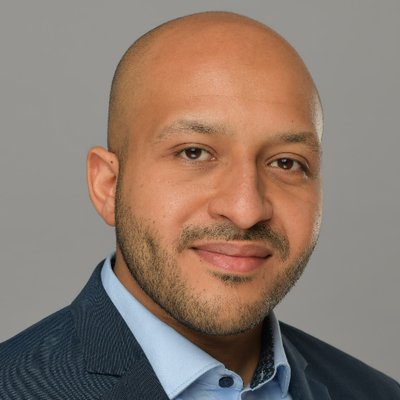Dr. Ahmed Khalil is a stroke imaging researcher, neuroscientist, and radiology resident at the Charité Universitätsmedizin Berlin in Germany. He holds postgraduate degrees in internal medicine, neuroscience, and neuropsychopharmacology from universities in the UK, France, and Germany. His research focuses on improving ways stroke is diagnosed and treated. Other interests include science communication and scientific/medical education.
EDUCATION
MD-PhD in Medical Neurosciences
Charité Universitätsmedizin Berlin (Germany)
October 2014 – December 2018
Erasmus Mundus Master’s in Neuroscience (Neurasmus, double degree )
o MSc in Medical Neurosciences,
Charité Universitätsmedizin Berlin (Germany)
o MSc in Neurosciences and Neuropsychopharmacology Université Bordeaux Segalen, Bordeaux (France)
Awarded July 2014
Postgraduate Diploma in Internal Medicine (with Distinction) University of Edinburgh & Royal College of Physicians, Edinburgh (UK) Awarded September 2014
Certificate in Sexual and Reproductive Health Research
Geneva Foundation for Medical Education and Research, Geneva (Switzerland) Awarded November 2011
Bachelor of Medicine and Bachelor of Surgery (with Distinction)
University of Medical Sciences & Technology, Khartoum (Sudan) Awarded October 2010
WORK EXPERIENCE
Junior Clinician-Scientist Berlin Institute of Health
July 2019 – present
Radiology resident and postdoctoral researcher , Charité Universitätsmedizin Berlin
September 2018 – present
Stroke imaging researcher, Center for Stroke Research Berlin, Charité
October 2014 – August 2018
Postgraduate medical intern (House officer), Federal Ministry of Health, Khartoum 2011 – 2012
Research assistant, Reproductive and Child Health Research Unit, University of Medical Sciences &
Technology, Khartoum 2011 – 2012
ADMINISTRATIVE EXPERIENCE
eLife Science Publications Ltd.
Early Career Research Ambassador (2018)
International Graduate Program Medical Neurosciences, Charité
Curriculum Development Working Group Member (2017–present)
Machine Learning in Healthcare Meetup Berlin http://bit.ly/2EArOIj
Co-organizer (2017–present)
Erasmus Mundus Association
Country representative, Sudan (2013)
Member, Professional Development Team (2013–2015)
Program Representative, Neurasmus (2015)
LANGUAGES
English (native or bilingual proficiency)
o IGCSE – English as a first language (A+), English literature (A+)
o IELTS score 8.5
Arabic (native or bilingual proficiency)
German (upper intermediate proficiency)
o CEFRL B2 level
SCIENTIFIC WRITING & COMMUNICATION EXPERIENCE
Science journalism
Charité NeuroScience (CNS) Newsletter http://bit.ly/2bU3dhJ
o Editor-in-chief (2014 – 2017)
o Writer (2013 – present)
o Proofreader (2013 – present)
Disce aut discede https://ahmedkhalil.me/disce-aut-discede/
o Science blogger (2012 – present)
Academic writing
Bayrak Ş, Khalil AA, Villringer K, Fiebach JB, Villringer A, Margulies DS, Ovadia-Caro S. The
impact of ischemic stroke on connectivity gradients. NeuroImage Clin. 2019
Castillo X, Castro-Obregón S, Gutiérrez-Becker B, Gutiérrez-Ospina G, Karalis N, Khalil AA,
Lopez-Noguerola JS, Rodríguez LL, Martínez-Martínez E, Perez-Cruz C, et al. Re-thinking the
Etiological Framework of Neurodegeneration. Front Neurosci. 2019
Ovadia-Caro S, Khalil AA, Sehm B, Villringer A, Nikulin V V., Nazarova M. Predicting the
response to noninvasive brain stimulation in stroke. Front Neurol. 2019
Fan AP, Khalil AA, Fiebach JB, Zaharchuk G, Villringer A, Villringer K, Gauthier CJ. Elevated
brain oxygen extraction fraction measured by MRI susceptibility relates to perfusion status in acute
ischemic stroke. J Cereb Blood Flow Metab. 2019
Khalil AA, Mueller S, Foddis M, Mosch L, Lips J, Przesdzing I, Temme S, Flögel U, Dirnagl U,
Boehm-Sturm P. Longitudinal 19F magnetic resonance imaging of brain oxygenation in a mouse
model of vascular cognitive impairment using a cryogenic radiofrequency coil. Magn Reson Mater
Physics, Biol Med. 2018
Khalil AA, Villringer K, Filleböck V, Hu JY, Rocco A, Fiebach JB, Villringer A. Non-invasive
monitoring of longitudinal changes in cerebral hemodynamics in acute ischemic stroke using BOLD
signal delay. J Cereb Blood Flow Metab. 2018
Galinovic I, Kochova E, Khalil AA, Villringer K, Piper SK, Fiebach JB. The ratio between
cerebral blood flow and Tmax predicts the quality of collaterals in acute ischemic stroke. PLoS One.
2018
Lakens D, Adolfi FG, Albers C … Khalil AA … et al. Justify Your Alpha: A Response to ‘Redefine
Statistical Significance’. PsyArXiv. 2017
Khalil, AA, 2017. Positron Emission Tomography (PET). In J Vonk & TK Shackelford, eds.
Encyclopedia of Animal Cognition and Behavior. Springer, pp. 1–6.
Khalil, AA, 2017. Blindsight. In J Vonk & TK Shackelford, eds. Encyclopedia of Animal
Cognition and Behavior. Springer.
Khalil AA, Ostwaldt A-C, Nierhaus T, Ganeshan R, Audebert HJ, Villringer K, Villringer A, Fiebach JB. Relationship Between Changes in the Temporal Dynamics of the Blood-Oxygen-LevelDependent Signal and Hypoperfusion in Acute Ischemic Stroke. Stroke. 2017
Villringer K, Sanz Cuesta BE, Ostwaldt A-C, Grittner U, Brunecker P, Khalil AA, Schindler K, Eisenblätter O, Audebert H, Fiebach JB. DCE-MRI blood-brain barrier assessment in acute ischemic stroke. Neurology. 2016
Khalil AA, Hohenhaus M, Kunze C, Schmidt W, Brunecker P, Villringer K, Merboldt KD, Frahm J, Fiebach JB. Sensitivity of Diffusion-Weighted STEAM MRI and EPI-DWI to Infratentorial Ischemic
Stroke. PLoS One. 2016
Jadavji NM, Farr TD, Lips J, Khalil AA, Boehm-Sturm P, Foddis M, Harms C, Füchtemeier M,
Dirnagl U. Elevated levels of plasma homocysteine, deficiencies in dietary folic acid and uracil-DNA
glycosylase impair learning in a mouse model of vascular cognitive impairment. Behav Brain Res. 2015
Ibrahim MM, Khalil AA, Khan UA. Offspring sex ratios among male tobacco smokers in Khartoum, Sudan. J Pak Med Assoc. 2012
